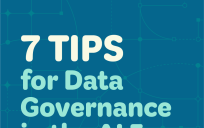The skills that will help government employees succeed in the 2020s are the same skills that helped them achieve in the past decades.

The governments of the future will be a new world reshaped by artificial intelligence, data science, and wicked problems. Yes, technical skills will be in high demand, but technical skills are necessary but not sufficient. The classic skills of oral and written communication, problem-solving, innovation, emotional intelligence, and critical thinking will be even more important in the age of intelligent machines.
To meet the challenges and opportunities for government agencies/employees in 2023 and beyond, sharpen your skills in the following areas:
Oral and Written Communication: Government agencies are essentially decision factories. Every employee in an agency, from the front-office worker to the senior leadership, makes thousands of decisions that provide government services, resolve disputes, and solve problems for the public. Good communication is vital to framing the issues that need a decision and telling others what decision is made. The clearer and more focused the communication, the better the decisions.
Critical Thinking: Closely related to good communication is the ability to think critically. Government employees must be able to gather sufficient data and question the quality of the information so they can fully understand the nature of problems and challenges. Often, issues require more analysis before we can take confidence in our solutions.
Problem-Solving: Communication allows government employees to think critically and fully understand problems and challenges. Both skills are vital for the problem-solving that helps us build solutions to enact our decisions. However, as agencies tackle wicked problems like climate change, global crimes, and managing poverty, government employees need more sophisticated and impactful problem-solving methods and techniques.
Emotional Intelligence: All change has emotional and intellectual components. There are many examples where a decision was logically correct but was resisted because the emotional aspects were repugnant to citizens. Effective government decisions must honor the emotional impact that solutions will cause during their implementation.
Innovation and Design Thinking: At the core of design thinking is empathy for the people affected by government decisions and solutions. The above skills set the stage for effectively communicating an innovative solution to a well-analyzed challenge.
There is nothing new about these skills. They have been used for thousands of years to help humans govern themselves since ancient civilizations.
ChatGPT and the Augmented Government Employee
In the last few weeks, you may have seen the news about ChatGPT. ChatGPT is an artificial intelligence algorithm that can compose sophisticated written responses to users’ prompts. Sometimes, it isn’t easy to distinguish between something written by a human and ChatGPT. As more people use ChatGPT, it will only become better at emulating human communication. I also expect ChatGPT to master critical thinking and problem-solving.
I believe it will be some time before ChatGPT or similar artificial intelligence programs can master emotional intelligence and innovation. However, I see the real power of ChatGPT as augmenting human decision-making and problem-solving skills. For example, Garry Kasparov, the international chess grandmaster, has played several chess matches aided by computers, where he extolled the virtues of artificial intelligence augmenting human decision skills:
Augmenting the skills that make us human through artificial intelligence will help government employees and agencies meet this year’s challenges and the challenges of the rest of this century.
Dr. Bill Brantley works in the U.S. Navy Inspector General Office as a Senior Training Specialist where he is leading the project to build the Office’s first learning portal for nearly 1,000 employees in the enterprise. He has been a program manager for the Emerging Leader Program and Supervisor Certificate Program at the U.S. Patent and Trademark Office. He also managed the Executive Coaching and the Career Coaching Programs. Dr. Brantley was awarded the 2019 Emerging Training Leader by Training Magazine and is an IPMA-HR SCP, a Certified Professional in Talent Development, an ROI certified professional, a certified data scientist, and a Certified Professional in Training Management. He is a certified Project Management Professional, a certified agile project manager, a certified professional in business analysis, and is certified in Disciplined Agile. He has completed over 200 hours of coaching training from the Neuroleadership Institute, the American Confidence Institute, emotional intelligence coaching, and the Global Team Coaching Institute. Dr. Brantley is an adjunct faculty member for the University of Louisville (20+ years) and the University of Maryland (8+ years). He is the author of the “Persuasive Project Manager” (2019) and “Four Scenarios for the Future of the Federal Government” (2019).





Leave a Reply
You must be logged in to post a comment.